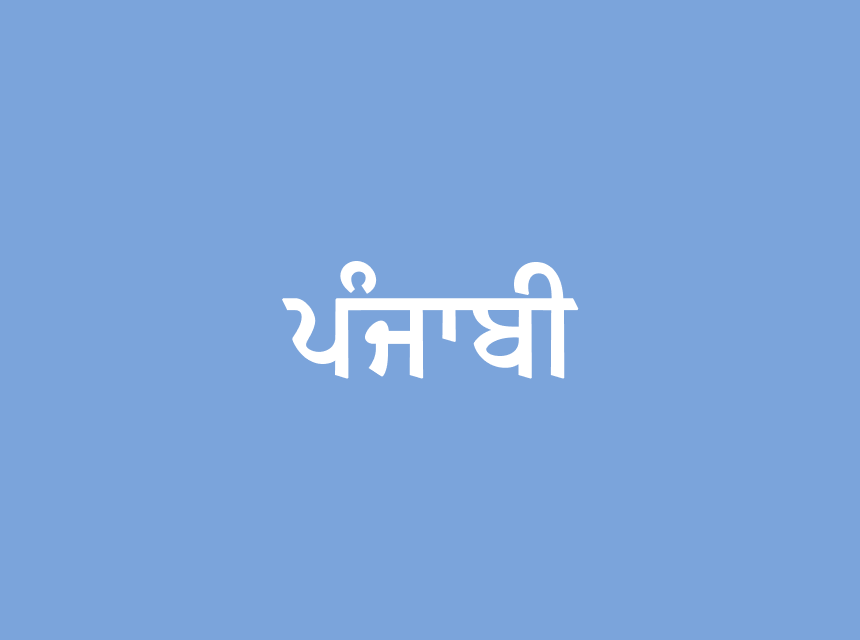Dr. Harjeet Grewal: Deepening Our Relationship With The Panjabi Language
The struggle to maintain and teach the Panjabi language is in many ways a global one.
Dr. Harjeet Singh Grewal
April 21, 2022 | 3.5 min. read | Opinion
On February 27, 2022, I had the honour of speaking at a conference held by the Panjabi Language Education Association (PLEA), commemorating the 19th Annual International Mother Language Day (IMLD).
As a student at the University of British Columbia (UBC) in the early 2000s, I had the privilege of interacting with PLEA’s members and working toward their goal of promoting education of the Panjabi language locally, nationally, and globally. PLEA’s work has been directed at liaising with public schools in Surrey to lobby for and help develop Panjabi language instruction. In the last two decades, PLEA has played a substantial role in expanding offerings of the Panjabi language in public schools in British Columbia and has helped develop the province’s Panjabi language curriculum.
PLEA has commemorated IMLD locally for Panjabis in British Columbia’s Fraser Valley for many years. It is a day rooted in wider South Asian struggles to recognize and officially use their mother tongues.
After the bloody and destructive partition of the subcontinent on August 15, 1947, Pakistan was created out of British India to reflect South Asia’s Muslim majority regions. While India maintained a pluralistic language policy by granting different official capacities such as central governmental language, state languages, and regional languages, Pakistan pursued a more monolingual policy of promoting Urdu alone.
Dhirendranath Datta raised the issue in Pakistan’s constituent assembly on Feb. 23, 1948, only a few months after the partition. Four years later, on February 21, 1952, police opened fire on student demonstrators advocating for the recognition of Bangla resulting in the deaths of Abdus Salam, Abul Barkat, Raffiq Uddin Ahmed, Abdul Jabbar, and Sahfiur Rahman. These five individuals are memorialized today as shaheeds, spilling their blood in a rare instance of defending one’s language by paying the ultimate price. Language Movement Day was celebrated on February 21, 1955, to commemorate their martyrdom.
These events would be carried across continents to create IMLD.
Like Pakistan, there has been continued pressure to learn and adopt Hindi in India despite its official multilingual policy. There has been a recent resurgence of attempts to diminish Panjabi language education. In many ways, Panjabi in both its Pakistani context and Indian context remains a second-tier language of the gallis, bazaars, and villages rather than a language used in education.
The struggle to maintain and teach the Panjabi language is in many ways a global one.
Canada’s foundational role in creating IMLD comes when two Bangladeshi language rights activists, Rafiqul Islam and Abdus Salaam, wrote a letter to the UN’s Secretary General, Kofi Annan, from Vancouver on January 9, 1998.
They wanted the UN to preserve linguistic diversity and commemorate the 1952 Language Movement tragedy. UNESCO proclaimed February 21 International Mother Language Day in 1999 but it was not until 2014 that Matthew Kellway, an MP from the East York riding, introduced private member’s bill C-573 to have it recognized in Canada.
Provinces have been slow to officially recognize International Mother Language Day; in 2015 British Columbia and Manitoba both issued official recognition of it, and, in 2017, the municipality of Edmonton officially also observed it. Many minority linguistic communities still face an uphill battle to get their languages officially taught.
Why struggle to learn Panjabi when it is so easy to access knowledge and art in other languages?
As a Sikh Punjabi born in Canada, there are many difficulties in learning and retaining Panjabi. First and foremost, the non-existence of comparable learning resources compared to support for Romance languages, like French and Spanish. The second major issue was finding reading material at all.
Being a motivated learner is challenging. Nonetheless, one of the foremost reasons to persist is self-cultivation and self-knowledge. Panjabis are not the only linguist community facing generational language loss; we can see that language loss amongst Indigenous communities furthered the goals of colonization, forced cultural assimilation, and a loss of identity.
As a community, we need to coordinate through different institutions to advocate and create adequate tools for teaching our mother language. I think it is time to have a global conversation about recovering our self-pride and reclaiming our languages—Canada, as always, is a great place to continue to push for linguist equity.
Dr. Harjeet Singh Grewal lives and grew up in Edmonton, Alberta. He has a background in Molecular Genetics and Asian Studies. He currently teaches courses in Asian Religion and Sikh Studies at the University of Calgary and Comparative Literature courses at MacEwan University. Harjeet’s research is grounded in creating novel approaches to Sikh literature and philosophy by applying these to current humanitarian questions. You can contact Harjeet via email at harjeet.grewal@ucalgary.ca.
Baaz is home to opinions, ideas, and original reporting for the Sikh and Punjabi diaspora. Support us by subscribing. Find us on Twitter, Instagram, and Facebook at @BaazNewsOrg. If you would like to submit a written piece for consideration please email us at editor@baaznews.org.


